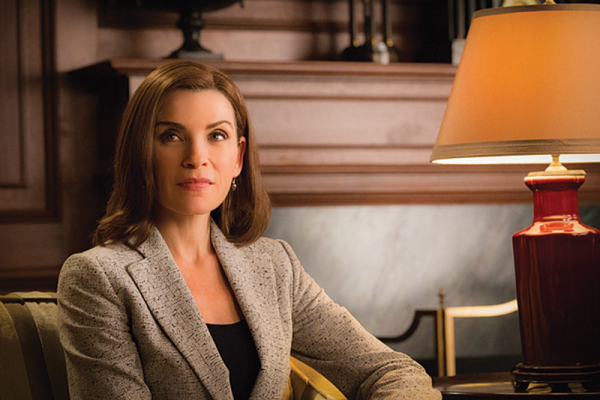THE BEST WORD to describe The Good Wife (2009-2016) in comparison to its prestige TV peers may be generous. Its predecessors (The Sopranos, The Wire, Mad Men, Breaking Bad) in the TV golden age of the early 2000s set the expectation that serious dramas on the small screen have seasons of about 13 episodes each and air on platforms you must pay for (cable channels such as HBO and AMC, and now subscription streaming services like Netflix). In contrast, less-than-highbrow thrillers with a bit of humor, like the police procedural NCIS, pour out nearly double that amount of content per season on free network TV.
But The Good Wife on CBS defied that expectation. Here was a network drama that was just as revelatory about humanity as the best of cable’s offerings while also being hilarious, accessible, and plentiful (seven seasons of no fewer than 22 episodes each). In a world where complex female TV protagonists are still too rare, revisiting The Good Wife is a holiday break well spent.
Read the Full Article

